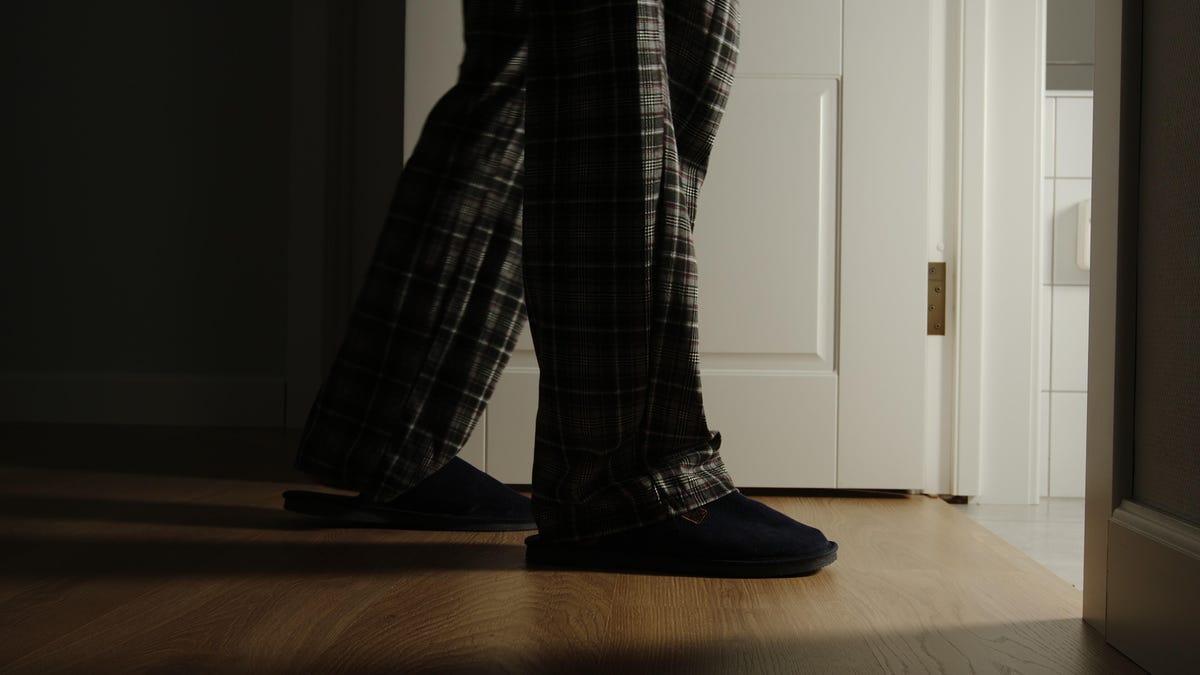 Why You Can Trust CNET
Why You Can Trust CNET Waking Up Too Much to Pee? What to Know About Frequent Night-Time Urination
If you're waking up too often at night to pee, you might be ruining your sleep quality. Here's what you can do to sleep better.

For some people, a rumbling stomach and a hunt for a midnight snack is the only reason for getting out of bed in the middle of the night. Others face a late-night urge that they can't ignore: a visit (or multiple visits) to the bathroom. Getting up to pee several times throughout the night isn't just frustrating, it can also greatly impact the quality of sleep you get.
Millions of Americans wake up to use the bathroom while they should be sleeping, and if you're one of them, you're probably not thrilled about it. Fortunately, a few tips and tricks can help you get a better night's rest. Here are some of the best tips we found.
What is nocturia?
Nocturia is a medical condition that causes you to wake up more than once per night to pee. It affects an estimated one in three adults over 30 and about half of people 65 and older.
There are many causes of nocturia, including drinking too much liquid before bed, consuming alcohol or caffeine at nighttime or taking diuretic medications. Certain medical conditions -- like bladder obstructions, diabetes and urinary tract infections (UTIs) -- can also contribute to nocturia. In other cases, people have nocturia simply because they've developed a habit of waking up and using the bathroom (even though they might not necessarily need to go).
How do I stop waking up to pee at night?
If you're tired (quite literally) of getting up in the middle of the night to pee, the following tips might help. Keep in mind, that these are just suggestions and not medical advice. Be sure to speak with a doctor if you're concerned about your nighttime bathroom usage.
Monitor caffeine intake at night
Research has found that drinking caffeinated beverages can increase the need to pee in people with overactive bladder (OAB) symptoms due to the diuretic properties of caffeine.
If you're urinating frequently at night, you might find some relief by limiting your caffeine intake during the day. In general, experts recommend cutting off your caffeine consumption by noon -- or at least avoiding caffeine in the second half of the day.
Look into pelvic floor therapy
If you have pelvic floor issues, you may also have problems with nocturia or incontinence. In these cases, pelvic floor therapy can help strengthen your muscles, give you more bladder control and prevent leaks.
You can perform basic pelvic floor exercises (like Kegels) at home. Start by emptying your bladder, then lying on your back. Contract your pelvic muscles for three to five seconds, then release and relax for three to five seconds. Repeat the process 10 times.
Alternatively, you can book an appointment at a pelvic therapy clinic near you.
Try compression socks
As you go about your day, fluid builds up in your legs. When you go to bed (and, in the process, elevate your legs), your kidneys start to process this fluid, which can increase your need to urinate. One way to prevent this is by improving your body's fluid distribution throughout the day so you don't have to pee as much at night.
How can you boost fluid distribution? Wearing compression socks during the day promotes better blood flow and improves circulation, so fluid is less likely to collect in your legs. Recent research also shows that it may help treat nocturia.
Avoid large beverages after dinner
Minimizing your fluid intake before bed is another strategy to help you pee less during the night. If possible, don't drink anything for two hours before you go to sleep. It's also a good idea to limit your beverage consumption in the late afternoon and evening.
While it's best to avoid any type of drinking before bed, it's especially important to cut out alcohol. Like caffeine, alcohol is a diuretic that makes your body produce more urine, so consuming alcoholic beverages in the evening will likely lead to you urinating more at night.
Take a daily nap
When you lie down for a short afternoon snooze, your bloodstream will absorb liquid in your body, prompting you to go pee when you wake up. As a result, you may need fewer nighttime trips to the bathroom because you've already gotten rid of some of the liquid that you'd usually expel at night.
On top of that, naps can help you feel more refreshed if you slept poorly the night before due to your nocturia. To get the most out of your nap, keep it to a maximum of 20 minutes and aim to take it earlier in the day.
When do I need to see a doctor?
If you've tried these tips and still find yourself waking up to pee multiple times per night, reach out to your doctor. You should also see a medical professional if your nighttime bathroom trips are causing you severe distress, ruining your sleep quality, or if you have other uncomfortable urinary symptoms.
Your doctor can help pinpoint what's triggering your nocturia -- whether it's an underlying medical condition, a side effect of medication or a lifestyle factor. Once they determine the cause, they can recommend the appropriate treatment, which might include behavioral changes, exercises or medication.
While nocturia can be unpleasant, the good news is that it's a common condition that's usually quite manageable. With proper treatment, you can start sleeping better again in no time.